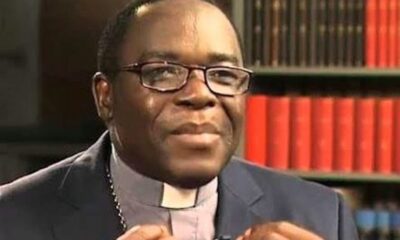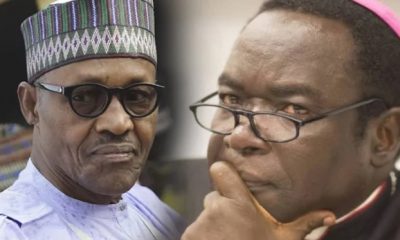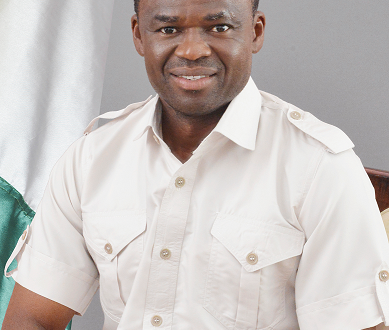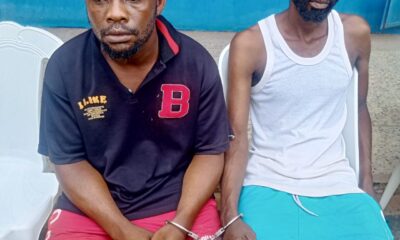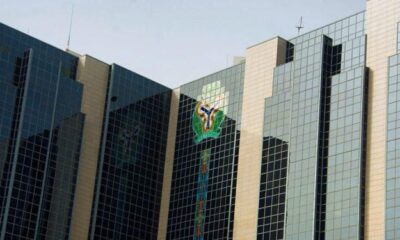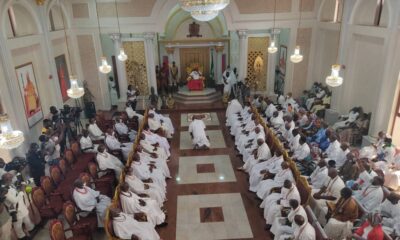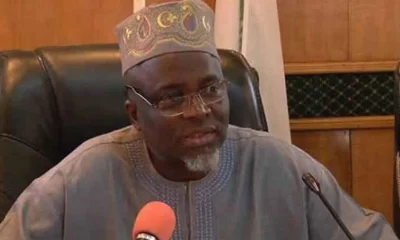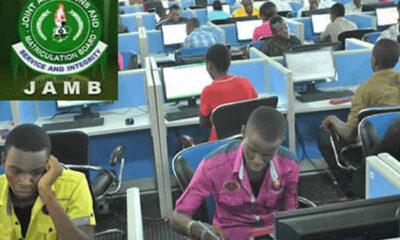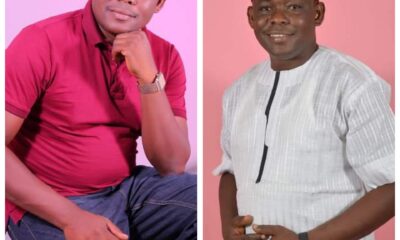News
FULL TEXT: Kukah’s Easter Message To Buhari
Published
2 years agoon
By
Editor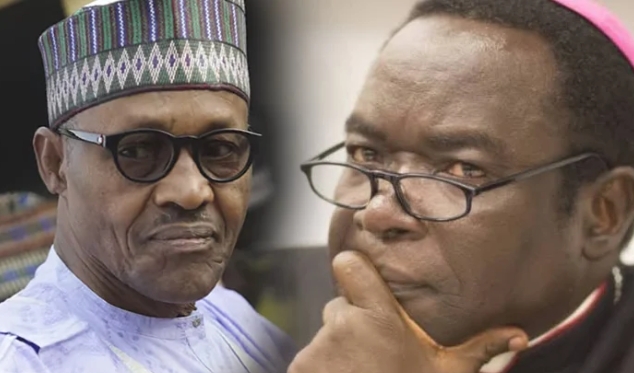
TO MEND A BROKEN NATION: THE EASTER METAPHOR (ON NIGERIA): (Easter Message by Bishop Matthew Hassan Kukah, Diocese of Sokoto
1: Hello brothers and sisters in Christ, men and women of goodwill everywhere, I send you hearty greetings and felicitations as we celebrate the risen Christ. Easter is here again. For all Christians, Easter is a metaphor for our lives as individuals, families, communities or nations. Easter is a metaphor for how shame, scandal, powerlessness, weakness, and opprobrium suddenly transform into glory, honour, pre-eminence, laudation and applause. It is a fulfilment of what the Master himself had foretold when He said, ‘Unless a grain of wheat falls on the ground and dies, it remains only a single grain, but if it dies, it bears much fruit’ (Jn. 12: 24). And the Psalmist had said, ‘Those who sow in tears will sing when they reap.’ (Ps. 126:5).
2: The crucifixion and resurrection of Jesus are central to the Christian faith and yet, as St Paul said, ‘We preach Christ crucified, a scandal to the Jews and nonsense to the Gentiles’ (1 Cor. 1: 23). St Paul continues: ‘What seems to be God’s foolishness is wiser than human wisdom and God’s weakness is stronger than human strength’ (1 Cor. 1:25). Without the claims of the resurrection of Jesus Christ, millions of people would be Christian today. As with the times of Jesus, the very idea is preposterous and incomprehensible yet St. Paul still insists that ‘If Christ has not been raised, then our faith is a delusion and we are still in our sins’ (1 Cor. 15:17). It is faith in the resurrection of Christ that inspires us Christians to hold firmly to the fact that, like the people of Israel, our dry bones shall rise again (Ez. 37: 11).
3: Our dear country, Nigeria, still totters and wobbles as we screech towards a dangerous and avoidable canyon of dry bones. Nonetheless, we still cling to hope, a hope in the resurrected Christ, knowing as St. Paul; said, ‘this hope does not disappoint us’ (Rm.5:5). Nigerians can no longer recognise their country which has been battered and buffeted by men and women from the dark womb of time. It is no longer necessary to ask how we got here. The real challenge is how to find the slippery rungs on the ladder of ascent so we can climb out. Yet, we ask, ascend to where? For us as Christians, ascent is to the loving embrace of the resurrected Christ who is Lord of history.
4: One would be tempted to ask, what is there to say about our tragic situation today that has not been said? Who is there to speak that has not spoken? Like the friends of Job, we stare at an imponderable tragedy as the nation unravels from all sides. The government has slid into hibernation mode. It is hard to know whether the problem is that those in power do not hear, see, feel, know, or just don’t care. Either way, from this crossroad, we must make a choice, to go forward, turn left or right or return home. None of these choices are easy, yet, guided by the light of the risen Christ, we can reclaim our country from its impending slide to anarchy.
5: The greatest challenge now is how to begin a process of reconstructing our nation hoping that we can hang on and survive the 2023 elections. The real challenge before us now is to look beyond politics and face the challenge of forming character and faith in our country. Here, leaders of religion, Christianity and Islam, need to truthfully face the role of religion in the survival of our country. The Nigerian Constitution has very clearly delineated the fine boundaries between religion and politics. Yet many politicians continue to behave as if they are presiding over both the political and the spiritual realms in their states rather than governing in a Democracy.
READ ALSO: Again, Kukah Lambasts Buhari, Says ‘You’ve Destroyed Nigeria, Divided Nigerians’
6: This conflict between Caesar and God is inbuilt in faith and is part of world history. Many religious leaders often measure their power by how close they are to Caesar, yet Caesar’s embrace is often full of thorns. The challenge is for the religious leader to know that both Caesar and those he represents are answerable to God who created them. The welfare of citizens constitutes the cornerstone for measuring the legitimacy of any political leader. As such, religious leaders must focus more on the issues of welfare, safety and security of ordinary citizens. They must raise their voice when these rights are being trampled upon. A leader must know when to call Caesar a fox and not a horse (Lk. 13:32).
7: The greatest challenge for Nigeria is not even the 2023 elections. It is the prospects for the reconciliation of our people. Here, the Buhari administration sadly has divided our people on the basis of ethnicity, religion, and region, in a way that we have never witnessed in our history. This carefully choreographed agenda has made Nigerians vulnerable and ignited the most divisive form of identity consciousness among our people. Years of friendships, cultural exchange, and collaboration built over time have now come under serious pressure from stereotyping. Notwithstanding these challenges, religious leaders must recover and deploy their moral authority and avoid falling victim to the schemes of politicians and their material enticements.
8: Today, the values of Interfaith dialogue have come under severe strain and pressure with extremists from both sides of our faiths denigrating the idea of dialogue with their counterparts of other faiths. Ignorance and miseducation have combined with prejudice to create the falsehood that somehow, one religion is superior to the others. With so many ill equipped fraudsters posing as religious leaders, there is an obsession with defaming the others and widening our differences.
9: Religious leaders must face the reality that here in Nigeria and elsewhere around the world, millions of people are leaving Christianity and Islam. While we are busy building walls of division with the blocks of prejudice, our members are becoming atheists but we prefer to pretend that we do not see this. We cannot pretend not to hear the footsteps of our faithful who are marching away into atheism and secularism. No threats can stop this, but dialogue can open our hearts.
10: Thank God, in the last few years, we have had some good news from outside the shores of Nigeria. The most noteworthy is the initiative undertaken by both Pope Francis and the Grand Imam of Al-Azhar Mosque, Egypt, Shaikh Mohammed Al-Tayeb in 2019, when both of them met and signed the Document on Human Fraternity. Pope Francis followed up with the publication of an Encyclical titled, Fratelli Tutti, We are all Brothers, in 2020. The following year, the United Nation’s General Assembly declared February 4, World Day of Fraternity. Both leaders agreed that: ‘We need to develop the awareness that nowadays, we are either all saved together or no one is saved. Poverty, decadence, and suffering in one part of the earth are a silent breeding ground for problems that will end up affecting our entire planet.’
11: We need to start thinking of a Nigeria beyond banditry and kidnapping and the endless circles of violence that have engulfed our communities and nation. We cannot continue to pretend that there are no religious undertones to the violence in the name of God that has given our religions a bad name. The way out is for the state to enforce the secular status of the Nigerian state so as to give citizens the necessary freedoms from the shackles of semi-feudal confusion over the status of religion and the state in a plural Democracy. We must be ready to embrace modernity and work out how to preserve our religions and cultures without turning religion into a tool for tyranny, exclusion, and oppression.
READ ALSO: Nigeria Decomposing Under Buhari – Kukah Declares
12: In finding our way forward, the President must concede that it is within his powers to decide how we are going to end the war that has engulfed and is tearing down our nation. It seems that the federal government has shown far greater commitment to integrating so called repentant terrorists than getting our children back from kidnappers or keeping our universities open. Earlier last month, Operation Safe Corridor announced that it had graduated 599 members of various terrorist groups who have acquired new skills and are now ready to be integrated into society. The total comes to over a thousand now. It is plausible to note that the programme involves pyscho-social support, rehabilitation, vocational training, skill acquisition and start-ups. Despite all this, the larger issue is that their various communities have expressed their reluctance to receive their erring sons back. Nigerians have no access to the transcripts of the texts of the confessions of these terrorists not to talk of evidence of their commitment to not sin again. We have only the words of the terrorists and the same military that they have been fighting a war with. It speaks volumes when the President and his military hierarchy choose to believe these young men who took up arms and for years waged war against their country, killed, maimed and wasted thousands of lives, destroyed entire communities and now, they are being housed, fed, clothed with public funds. All this while their victims have been forced to make the various IDP camps their new homes! Where is the justice for the victims and the rest of the country they have destroyed?
13: As a priest, I cannot be against a repentant sinner or criminals changing their ways. After all, the doors of forgiveness must always remain open. However, in this case, Nigerians have very little information as to the entire rehabilitation processes. Have these terrorists felt the heat or have they seen the light or, is their repentance a mere strategic and tactical repositioning? So far, we have no evidence that these terrorists have been able to confront their victims not to talk of seeking forgiveness from them. Something is wrong. We see these terrorists adorned in our national colours in their green and white kaftans, trousers, and looking like heroes of the state! Are we to assume that they have become acknowledged models for Nigerian youth? Perhaps the next graduating set might be treated to Presidential handshakes, receptions at the villa with full national colours!
14: Only last week, as if in delayed solidarity, the Jama’atu Nasril Islam, JNI, in a Statement stated that: ‘It appears that the continuous callous acts of mayhem, killings and arson happening almost on daily or weekly bases around us; either within communities or on the roads we ply, has automatically reset our human psyche that we now have accepted such dastardly acts as part of our lives, to the extent that we no longer feel it….Any government that is incapable of protecting the lives of its citizens has lost the moral justification of being there in the first place….our humanity is being eroded and that erosion is become a new normal.’ Similarly, the Northern Elders Forum, NEF, and the House of Representatives have finally called on the President to resign since, in their view it is now clear that he cannot protect his citizens. This has come three years after the Catholic Bishops’ Statement issued on April 26th, 2018 made the same call that was greeted with cynicism.
15: The challenge of fixing this broken nation is enormous and, as I have said, requires joint efforts. With everything literally broken down, our country has become one big emergency national hospital with full occupancy. Our individual hearts are broken. Our family dreams are broken. Homes are broken. Churches, Mosques, infrastructure are broken. Our educational system is broken. Our children’s lives and future are broken. Our politics is broken. Our economy is broken. Our energy system is broken. Our security system is broken. Our Roads and Rails are broken. Only corruption is alive and well. So, we ask with the Psalmist, We look up to the hills, from where shall come our help? Our help shall come from the name of the Lord (Ps. 121:2).
16: 2023 beckons and the stage is set. The challenge is whether we have learnt any lessons from the tragedy that has afflicted us in the last few years. The Presidency of Nigeria is not a human right based on ethnic, religious or regional sentiments. The next President of Nigeria must be a man or woman with a heart, a sense of empathy and a soul on fire that can set limits to what human indignities visited on citizens that he or she can tolerate. We have no need for any further empty messianic rhetoric laced with deceitful and grandiose religiosity. We need someone who can fix our broken nation, rid our people of the looming dangers of hunger and destitution. Our Presidential aspirants must show evidence from their legacies and antecedents that they know the country well enough and its severe wounds. Whoever wants to govern us must illustrate that he or she understands what has turned our nation into a national hospital and show us plans for our discharge from this horror. Support for INEC and its infrastructure is fundamental to a free and fair election and we condemn in very strong terms all those criminals who continue to threaten the society with violence. They should meet the full force of the law.
READ ALSO: See What Bishop Kukah Told US Congress About Buhari Govt
17: I thank the President for accepting the report of the Committee on the Prerogative of Mercy and granting pardon to over 150 Nigerians serving various terms of imprisonment. The more serious challenge is to immediately free all innocent Nigerians who are held captive and whose only crime is that they are living in Nigerians. With the news of the purchase of new sophisticated weapons, we hope that the President and the military will quickly roll out a strategy for routing this cancer that has afflicted our country. The general feeling is that the military has the capacity to end this tragedy. In reality, the military cannot fire beyond the radar set by their commander-in-chief. If the President can end this tragedy, he will immediately get the support of all citizens and hopefully leave office witih his head held high.
18: We cannot end this Message without sparing a thought for the untold sufferings being experienced by the people of Ukraine as a result of the invasion of their country by Russia. We turn in prayer to the Lord to touch the hearts and minds of those in power and in position to reverse this avoidable loss of human lives. May the spirit of the resurrected Christ and the appeals of all men and women of good will help to bring an end to this human tragedy.
19: Finally, in the last few years, my Messages have been borne out of a sense of moral revulsion over how life has been destroyed in my country. No country anywhere in the world is undergoing these self-inflicted wounds, citizens randomly murdering innocent citizens and getting away with it. For me as a Christian, there is a minimum threshold of human indignity that I can live with because the reason why Jesus came is so that all of us will have life and have it to the full (Jn. 10:10). We must shout at what diminishes any and every life in our society. Once human dignity is respected and restored, we will change our tone, but for now, our voice must have a sense of urgency. We Christians believe that to redeem the world, Christ allowed His body to be broken. We know He can heal out broken nation. May the light of His resurrection scatter the clouds and rout the men of evil, inspire a new birth in our dear nation and restore us to wholeness. A happy Easter to you all.
You may like


Nigerian Leaders Like Men In ‘Drunken Stupor’ – Kukah


Christmas: God, History Won’t Forgive Tinubu If He Fails – Kukah


Japa: I Feel For Many Nigerians Who Cannot Travel Abroad – Kukah


JUST IN: Kukah Suspends Catholic Masses In Sokoto


‘Blasphemy’: Bishop Kukah Fumes Over Murder Of Female Student In Sokoto


Insecurity: Presidency Blames Kukah, Others For 12 Tucano Fighter Jets’ Delayed Delivery

The Federal Government, through the Ministry of Solid Minerals Development, has announced plans to review rates of mining licenses and other sundry fees payable by mining operators in the country.
Speaking during a consultative meeting with stakeholders in the mining industry on Thursday in Abuja, the Minister of Solid Minerals Development, Dele Alake, stressed that the review has become inevitable if government is to effectively fulfil its obligations of providing an enabling environment for mining operations whilst also raising more revenue for government.
He added that the plan would also boost the capacity of government to effectively reposition the mining sector and solicited the support of stakeholders for the impending increase in fees for mining licenses and other sundry fees.
READ ALSO: EFCC Chairman Narrates How 17-year-old Hacked His Computer, Bank Account
Highlighting efforts to reposition the mining industry, the Minister revealed that asides from on-going reforms, the administration is sanitising the mining environment through the newly unveiled mining marshals, which he affirmed has been conducting operations in parts of the country to protect legitimate miners and combat illegal mining.
The minister in a statement signed by his special assistant on media, Segun Tomori said, “For us to continue to ensure that we secure the mining environment and keep putting in place measures that will ease the operational difficulties and challenges that confront miners, we need to review the rates of mining licenses and other sundry fees.
“We felt that we can’t just do this without letting you know because invariably, you are the players in the industry.”
Concerning the recent revocation of dormant mining licenses, the Minister noted that the government followed due process and extant laws guiding the action, emphasising that a 30-day restitution window still exists for operators that were affected.
It will be recalled that the Minister announced a restitution fee of N10m, 7.5m, 5m and 2.5m for Mining Leases, Small Scale Mining Licenses, Exploration License and Quarrying License respectively for revoked dormant licenses including those earlier revoked for default in payment of annual service fees.
In his submission, the Director-General of the Mining Cadastral Office, Engr. Obadiah Nkom, who also chair the fees review committee, stated that the committee recommended new rates that are affordable and will enhance the competitiveness of the fiscal regime of the mining sector in comparison with regional and global standards.
READ ALSO: JUST IN: Police Arrest Mastermind Of Abuja-Kaduna Train Attack
Speaking on behalf of the stakeholders, the President of the Miners Association of Nigeria, Dele Ayanleke commended the Minister for his efforts to put the mining sector on global frontburner, expressing support for ongoing reforms and plans to review fees payable by operators.
He urged the minister to consider challenges faced by miners and ensure the rates are affordable.
Other stakeholders in attendance include Representatives of Women In Mining, Gemstone Miners Association and top officials of the ministry.
News
EFCC Chairman Narrates How 17-year-old Hacked His Computer, Bank Account
Published
8 hours agoon
May 2, 2024By
Editor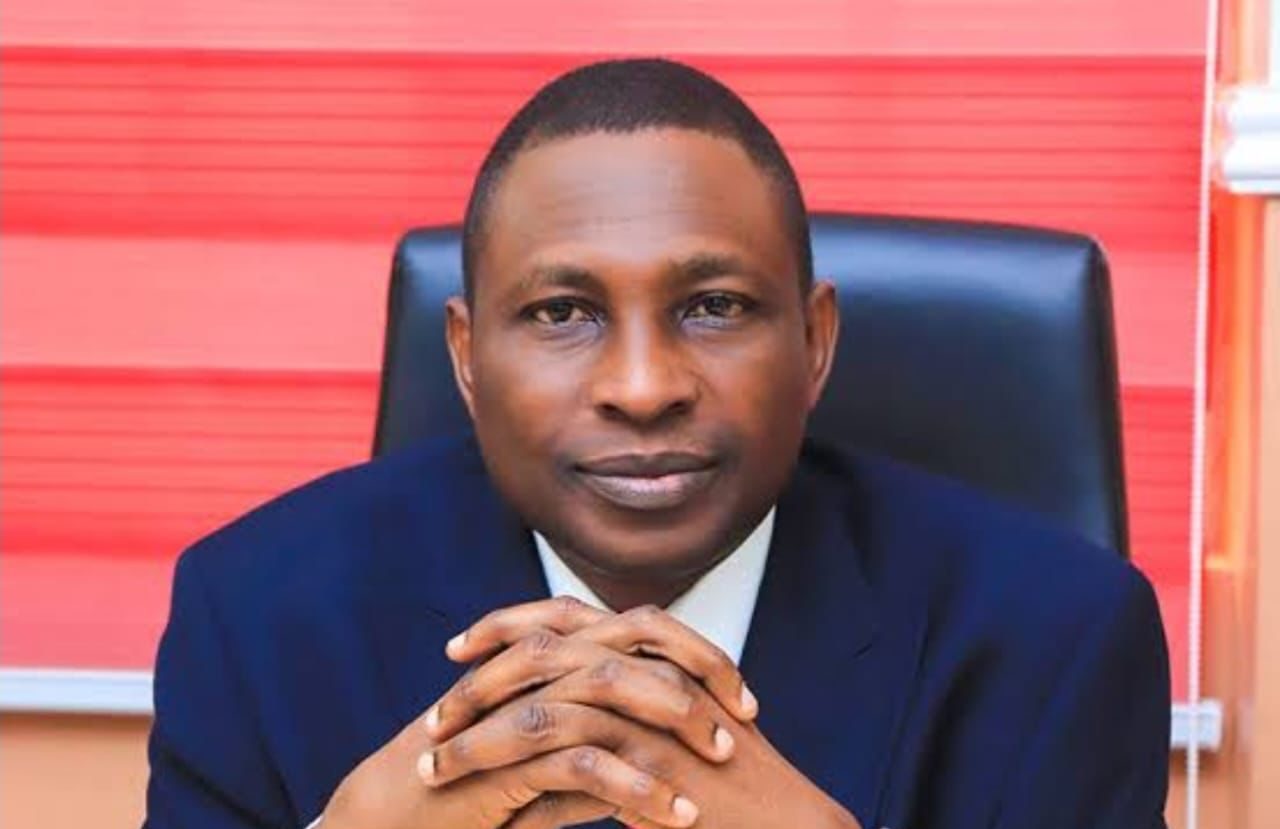
The Chairman of the Economic and Financial Crimes Commission, Ola Olukoyede, narrated an incident where a 17-year-old successfully hacked into his personal computer and bank account while being interrogated at his office in Lagos.
The anti-graft agency chairman made this known in a chat with editors at the EFCC Headquarters, Jabi, Abuja, last Tuesday.
Olukoyede recounted inviting the 17-year-old for questioning at his own office, only to witness the young hacker effortlessly bypass the security measures of his locked computer right before his eyes.
He said, “I brought into my Lagos office a seventeen-year-old boy who is studying History and Anthropology. He is in the 200 level. He is not doing anything science-related. The guy sat in my office in Lagos and demonstrated some things to me on my laptop.
“He asked for my number, I gave him my number and through my number, he got my BVN. He then mentioned the name of my account number to me at the bank. I didn’t tell him anything.”
READ ALSO: How Two Kenyan School Dropouts Made Prosthetic Arms For People With Disabilities
According to him, the country must take all necessary measures to discourage these young individuals, as their actions could lead to imprisonment or even fatal consequences.
“The problem is, I see crime in that, and I also see opportunities in it. So, if you leave these guys, we don’t make them know that what they are doing is wrong, if you leave them, they will continue to see it as a way of life to make money.”
He mentioned that due to their young ages, the EFCC would administer light sentences to punish youths for the cybercrimes they committed, while also focusing on helping them change their orientation.
“We plead for light sentences so that we can reorientate them and that’s part of what we’re doing. What joy will I derive from sending a 17-year-old boy to jail? You have destroyed his future. You have destroyed his career.
“Sometimes they give them options of fines and all of that conviction, so we bring them in, lecture them and talk to them.”
In a bold demonstration of his skills, the boy confidently informed Olukoyede that he could transfer up to 10 million naira from any account in a single transaction.
READ ALSO: Woman Kills One Year-old Son In Delta
He said the 17-year-old boy, when he was done, said, “Look, oga, I can make 10 million now. I will demonstrate it to you. I will move money from your account to mine.
“I said no, don’t do that in my office and he was ready to do that. When he opened my laptop, I didn’t give him the key to my laptop and he had access.
“When questioned about his involvement in cybercrime, the boy explained that his parents, who are both farmers, were unable to work on their farm due to security concerns.
“He has two younger ones. One is in JSS2 and the other is in SSS2. He is the one feeding his parents and responsible for the payment of tuition for his younger ones.
“I saw a Bill Gates in that guy.”
Olukoyede, however, assured the boy that he would take responsibility for his schooling if he was able to stop the criminal act.
“I told my family, we are going to do that.
READ ALSO: Naira Abuse: EFCC, Cubana Chief Priest To Settle Out Of Court
“I spoke to one of my friends who is also ready to help take up the schooling of the SSS 2 guy. So I’m still looking for someone who will take up the one for the JSS 2 sibling.”
This is not the first time the EFCC chairman has revealed the anti-graft agency’s plan to rehabilitate convicted internet fraudsters with reduced sentences.
Addressing a delegation of the National Association of University Students in March 2024, he said “when you think deeply, that tag ‘ex-convict’ is not a good thing. You can never tell where you will find yourself tomorrow, and they will want to profile you and discover that you are an ex-convict.”
“So, it is even in the interest of the youth that the EFCC is doing what it is doing to prevent them from indulging in the heinous act of cybercrime.”
News
Uganda President, Museveni Blasts Western Countries, Says ‘You Fund Seminars But Won’t Aid Manufacturing In Africa
Published
9 hours agoon
May 2, 2024By
Editor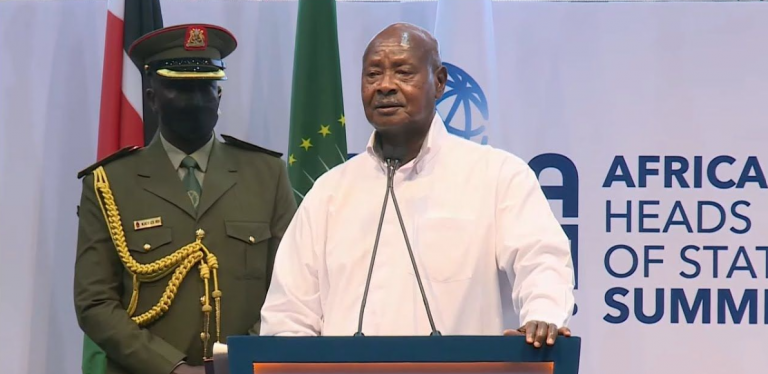
President Yoweri Museveni of Uganda took a bold swipe at world leaders during his speech at the World Bank’s International Development Association summit for African Heads of state, held in Nairobi, Kenya, on Tuesday.
In his remarks, Museveni opined that most of Africa’s problems predicted over 60 years ago were a result of philosophical, ideological, and strategic economic mistakes.
He alleged that a fundamental African problem is that aid from the World Bank and other Western bodies was majorly for profiteering.
“The crisis which is in Africa today is because of philosophical, ideological, and strategic economic mistakes which we have been talking about since the 1960s. It is not an accident when you see the crisis in many African countries, the collapse of States. We predicted this in the 1960s – philosophical, ideological, and strategic mistakes. I don’t have time to amplify each one but I was very happy to hear the president of the World Bank talking about prosperity instead of profiteering.
“Aid has been for profiteering, this has been the problem. Now, the World Bank people and other groups have been talking about sustainable development. Even in your documents, I have seen those words there, sustainable development”, Museveni stated.
READ ALSO: VIDEO: Lagos Uncovers Another Under-bridge Apartment
He argued that what Africa needed to thrive as a continent was not sustainable development as always suggested by the World Bank, and other key players in economic development, but social and economic transformation.
He urged the World Bank and world leaders to quit pushing sustainable development as a key factor in achieving a more developed African continent.
“I would ask you to change those words in your documents. Africa does not need what you could call sustainable development. Africa needs social and economic transformation. The main reason why there’s no growth is because the growth factors are not funded, they are not even understood. What are the growth factors, we now talk of private sector growth. Yes, but for the private sector to grow what does it need? It needs a low cost of production”, he said.
In his opinion, the main reason Africa remains underdeveloped is because the growth factors are not funded and they are not understood by the Western world.
He added that for Africa to be more developed and independent, the private sector needs funding. According to him, adequate funding for the transportation, power and agricultural sectors will boost low production costs.
“Ministers of finance, what are the low costs of production? Number one is transport. You must have low transport costs. Where do low transport costs come from? The railway? If you don’t fund the railway how will you get low transport costs?
READ ALSO: How Two Kenyan School Dropouts Made Prosthetic Arms For People With Disabilities
“Wonderful people, IMF, where will low-cost operations come from if you don’t have a railway? If you don’t fund the railway, how would you get low transport costs? I have been here for the last 64 years, I have been watching as a student leader, as a freedom fighter and now as the leader of a country. How many railways have been constructed or funded in Africa? The few that have been was by China, the Tanzanian railway to Zambia, and recently, another one here in Kenya. Tanzania on their own is building a railway line. So if you’re talking of developing Africa, fund the railway. If you fund the railway, you will have a low cost of transport and you can produce cheap products which can be bought all over the world.
“The second cost pusher is electricity. If you don’t fund electricity and you talk about sustainable development, what are you then talking about? We must have low-cost electricity not exceeding 5 cents per kilowatts, per hour. That is what I insist on in Uganda. I am tired of all these stories, I have put my foot down saying I don’t want to hear those stories. Uganda is a developing country and it will continue to develop because I don’t entertain nonsense anymore.”
Speaking further, Museveni who has ruled Uganda for over 40 years accused the World Bank and Western leaders of refusing to lend him money for capital projects such as the establishment of the Uganda Development Bank.
He lamented the rate at which loans are promptly approved and grated for frivolities but not for serious projects that would yield economic gains.
READ ALSO: Naira Abuse: EFCC, Cubana Chief Priest To Settle Out Of Court
He said, “Borrowing, for what? Capacity building! Imagine! They call you to a hotel where you eat Chapati and mandazi, and they say that is capacity building. Capacity building should be on the ground and not just in seminars. So, the second point your Excellencies is electricity. The third one; is for those people who talk about private sector growth, I have been trying to borrow money for our Uganda Development Bank, a bank which funds manufacturers, but no, I don’t get support for that.
“They say they want my people to go to commercial banks. Those commercial banks are to encourage import because the only person who can borrow money from a commercial bank and pay it back is a trader who goes to China, Dubai buys goods, sells them quickly and pays the loan back. So, if you are serious, I need it here, about the low-cost funding for manufacturing, not stories.”
“How about funding for irrigation? Because if you want to stabilise agriculture, a country like Uganda is very rich, we have got everything. But sometimes, we have some erraticness because of the rains. So, to stabilise irrigation I’ve been trying to look for a loan for irrigation but I can’t easily get it, it is very difficult to get. But a loan for seminars is very quick.”
PUNCH

PICTORIAL: C&S Church Ayo Ni O Installs New Leader

Court Remands Tenant For Setting Landlord’s House On Fire In Ibadan

Officer Who Shot Man Dead During Fuel Queue Tumult Identified — Lagos Police
Trending

 Politics2 days ago
Politics2 days agoWhy Candidate Who Needs Interpreter Can’t Be Edo Gov – Shaibu

 Metro4 days ago
Metro4 days agoEdo Police Arrest Suspected Cultists Who Allegedly Killed Rival In His Daughter’s Presence

 News4 days ago
News4 days agoJUST IN: Popular Gospel Singer Is Dead

 Business3 days ago
Business3 days agoCustomers Panic As CBN Bans Opay, Palmpay, Others’ New Accounts

 News1 day ago
News1 day agoEx-policeman Who filmed Wife Having Wex With Her Superior Found Guilty Of Stalking

 News3 days ago
News3 days agoOoni: Suspended Benin Palace Functionaries Banished

 News3 days ago
News3 days ago2024 UTME: JAMB Withholds Results Of 64,624 Candidates

 News3 days ago
News3 days agoBREAKING: JAMB Releases 2024 UTME Results

 News2 days ago
News2 days agoJUST IN: FG Approves Salary Increase For Civil Servants

 Metro4 days ago
Metro4 days agoGunmen Assassinate Governor Aiyedatiwa’s Campaign Coordinator In Ondo
